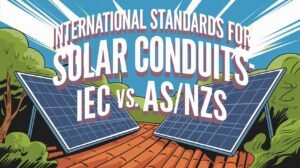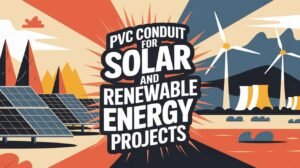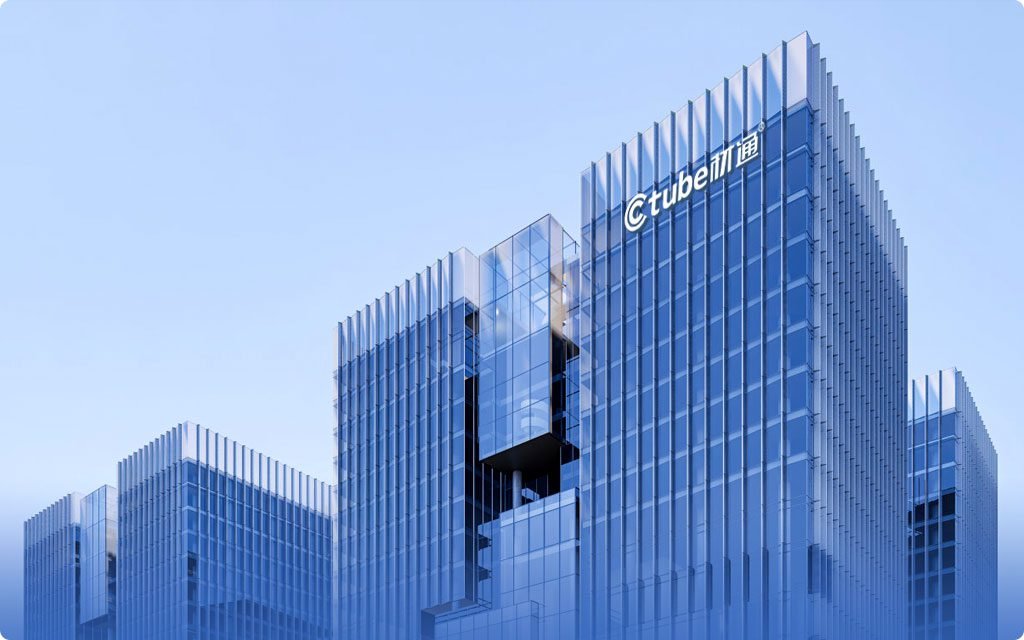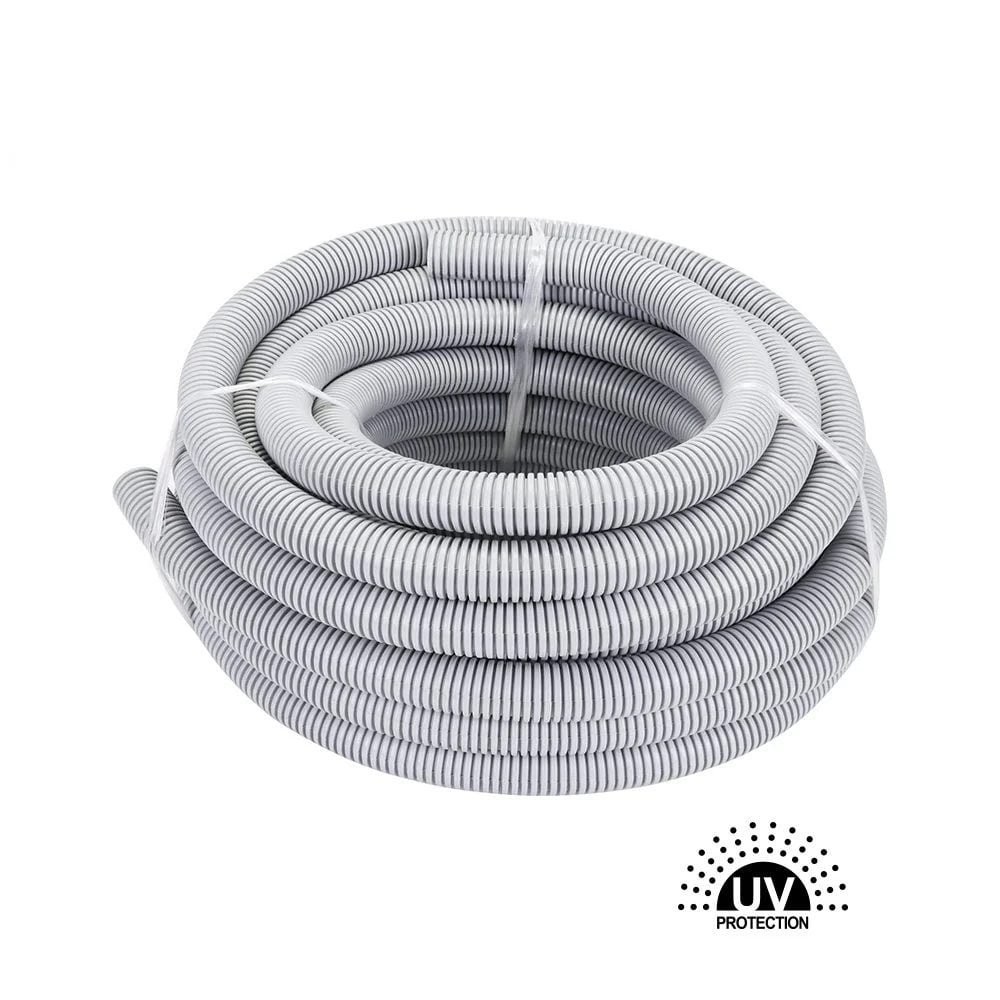Flexible conduits are an efficient and durable new type of conduit. Due to their flexible installation and resistance to pressure and vibrations, they are widely used in industrial, construction, aviation, and new energy fields. The most common types are PVC and metal. PVC corrugated conduits are favored for their lightweight, durability, and low cost, while metal corrugated pipes are renowned for their strength, rigidity, and stability.

Metal corrugated pipes are typically made of materials such as stainless steel and carbon steel. These pipes have high strength, rigidity, and stability, enabling them to withstand significant internal and external pressures. Additionally, metal corrugated pipes offer excellent resistance to electromagnetic interference, making them suitable for applications that require high stability, such as in the machinery, chemical, metallurgy, and construction industries.

However, compared to PVC corrugated conduit, metal corrugated conduits are relatively more expensive, which can increase project costs to some extent. Moreover, the installation process is more complex. Furthermore, metal corrugated pipes are prone to rust and corrosion when exposed to outdoor rainwater over long periods, which can affect their service life. Any damage to these pipes can compromise the safe operation of the circuit equipment.

The solar series of PVC corrugated conduits have excellent insulation, corrosion resistance, and weather resistance properties. These conduits can withstand high temperatures in desert regions as well as endure harsh weather conditions such as wind, snow, and hail. Additionally, the PVC solar corrugated conduits are specially treated with UV protection during the manufacturing process, ensuring they do not easily age and maintain stable performance under prolonged exposure to ultraviolet light, thus ensuring the safety of the wires in adverse climates. Moreover, they have been tested to withstand a compressive load of up to 1250Nt /5cm and a mechanical impact strength of 6J, which is about three times higher than that of regular PVC conduit, effectively preventing wire damage caused by external forces during construction or use.

Nowadays, PVC solar corrugated conduits have been involved in two major projects in the green energy sector of the “Belt and Road” initiative: the world’s largest photovoltaic project, the 2.6GW Al Shubah photovoltaic power station project in Saudi Arabia, and the world’s second-largest photovoltaic project, the 2GW PV2 photovoltaic power station project in Abu Dhabi. At present, the 2GW PV2 photovoltaic power station in Abu Dhabi is operating smoothly, with the project’s power generation reaching expected levels. Meanwhile, the Al Shubah photovoltaic power station in the southwestern desert of Saudi Arabia is under construction.
In summary, PVC solar corrugated conduits are more suitable for use in outdoor photovoltaic power application, but metal corrugated conduit also have their advantages in appropriate fields. When selecting electrical conduits, it is essential to consider the specific usage environment and requirements, taking into account factors such as material performance, applicable scope, installation difficulty, and cost. Additionally, it is crucial to choose reputable manufacturers and reliable products to ensure the safety of the electrical installation.












